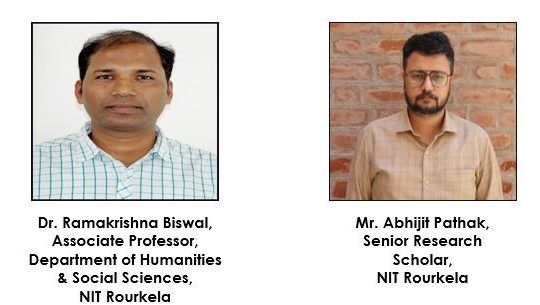Rourkela: A new study by researchers at the National Institute of Technology (NIT) Rourkela has highlighted the urgent need for support systems for parents raising children with developmental disabilities. The research underscores the toll that long-term caregiving takes on parents’ physical and emotional well-being, particularly in the absence of adequate societal and healthcare support. The study, led by Dr Ramakrishna Biswal, associate professor in the Department of Humanities and Social Sciences, and senior research scholar Abhijit Pathak, was published in the Asia Pacific Journal of Social Work and Development. It explores how sustained caregiving responsibilities affect the physical health and quality of life of parents, especially mothers, who often bear the brunt of daily care duties. “Disability rights are rightly acknowledged, yet the invaluable contributions of caregivers often remain in the shadows,” Biswal said. “Caring for a child with developmental disabilities should not rest solely on parents. It is a shared responsibility of families, neighbours, and society.” The researchers surveyed 400 parents of children with conditions such as autism, attention-deficit/hyperactivity disorder (ADHD), cerebral palsy, and multiple disabilities. Using culturally adapted assessment tools and advanced statistical methods, the study found that physical health significantly influences how stress affects caregivers’ mental and emotional states, as well as their relationships. Symptoms such as chronic pain, ulcers, fatigue, and headaches were frequently reported — signs of how caregiving stress manifests physically. The research further pointed out that while poor physical health plays a critical role in compounding stress, financial challenges and social isolation remain pressing concerns. In India, these issues are often worsened by societal stigma, limited access to specialised healthcare, and a lack of community awareness. Many parents feel isolated and unsupported, even by extended family, the study noted. The team employed the biopsychosocial model, which emphasises the interconnectedness of physical, psychological, and social factors in determining overall health.
Also Read: BJD women hit streets, demand Khatua’s arrest
This model allowed the researchers to chart how stressors interact and multiply, revealing the need for comprehensive intervention. The study calls for integrating caregiver health screenings and stress management programmes into paediatric disability services. It also recommends the establishment of community-based “one-stop” support centres where families can access healthcare, therapy, financial aid, and counselling under one roof. “At its core, this study is a reminder that supporting a child with developmental disabilities means supporting the entire family,” Biswal said. “Caregivers must be recognised, supported, and empowered so that both they and their children can thrive.”






































